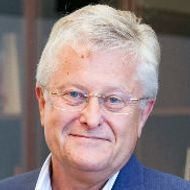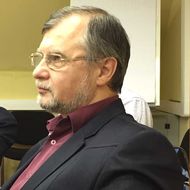- A
- A
- A
- ABC
- ABC
- ABC
- А
- А
- А
- А
- А
- HSE University
- Faculties
- Faculty of Social Sciences
- School of Political Science
- News
- Mattias Kumm: Liberal Democracy isn’t Perfect, but there are no Alternatives
3 Krivokolenny Pereulok, Moscow, 103070.
Phones:
8 (495) 772-95-90 *22833,
8 (495) 772-95-90 *22448
Fax: 8 (495) 772-95-90 *12556
Email: politfac@hse.ru
Washington: Free Russia, 2018.
Petrov N., Hale H. E., Lipman M.
Russian Politics. 2019. Vol. 4. No. 2. P. 168-195.
Arbatli E.
In bk.: Oxford Research Encyclopedia of Politics (Living Edition). Oxford University Press. P. 1-20.
Sorokina A., Maximenkova M., Kasamara V.
Political Science. PS. Высшая школа экономики, 2019. No. 71.

Mattias Kumm: Liberal Democracy isn’t Perfect, but there are no Alternatives
Mattias Kumm gave an evaluation of modern liberal democracy and shared his observation that the regular requirements of this political order are not fully implemented, even in developed systems such as the European Union or the U.S. For example, in the case of the U.S., the political process is hugely influenced by money. The result of this influence is a situation when most of the substantial issues of the political agenda are shifted and replaced with smaller ones.
Kumm questions why 25 years after the end of the Cold War, the normative ideal of a liberal constitutional democracy is becoming considerably less attractive. In his opinion, fascism and communism previously used to claim to present extreme alternatives to liberal democracy, but now they have largely lost their allure, although they are still popular to some degree in new audiences of radical leftists and radical rightists.
The professor mentioned the numerous shortcomings of modern liberal democracy, but, nevertheless, concluded that it has no real alternative, which in some sense means that we can go back to the ‘end of history’ concept suggested by F. Fukuyama almost quarter a century ago. Indeed, Kumm continued, various democratic models exist in the modern world, depending on historical traditions, stages of state and national development, and other circumstances. But ultimately we are talking about various models of liberal constitutional democracy, not about ‘democracies with adjectives’.
- About
- About
- Key Figures & Facts
- Sustainability at HSE University
- Faculties & Departments
- International Partnerships
- Faculty & Staff
- HSE Buildings
- HSE University for Persons with Disabilities
- Public Enquiries
- Studies
- Admissions
- Programme Catalogue
- Undergraduate
- Graduate
- Exchange Programmes
- Summer Schools
- Semester in Moscow
- Business Internship
- © HSE University 1993–2025 Contacts Copyright Privacy Policy Site Map
- Edit

